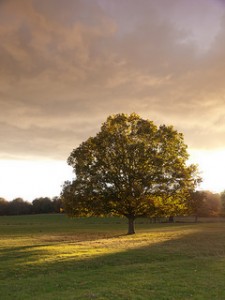
We need to be resilient, not strong
I’m troubled by the word ‘strong’ in relation to mental and emotional health. We’re encouraged to be strong when times are tough, when we’re under extra pressure at home, college, or work. We’re encouraged, by well-meaning friends, to be strong when we’re being bullied, or when a relationship breaks down, or when we lose our job.
But what if we can’t cope, and we cry, and we flail about a bit, and we stay in bed for 36 hours? What if we shut ourselves away from our friends, or argue with them for no reason, or slam doors, or quit our job, or hurt ourselves?
If we’ve not been strong, does that mean we’ve been weak? If everyone wants us to be strong, does that mean they think we’re weak, that they worry we may be weak?
I say no. To hell with this ambiguous language and judgemental stance on whatever ‘strength’ means.

To survive and thrive in life we don’t need to be strong, we need to be adaptable and resilient. We each have to find our own way of bouncing back – of bending in high winds and of standing tall in high waters. We each have to develop our own sense of self, without relying on vanity and ego.
Here are some ideas for you to consider . What does resilience mean to you?
To me, resilience means an ability to ‘bounce back’ from something painful; minimising the damage and aiding the healing process. It’s not about strength or weakness, but about drawing on previous experience to enable recovery; a knowledge that I’ve healed before from worse things, so I must be able to heal from this thing. Everyone develops resilience over time / life experience, but the key is to allow yourself to use it, and that’s the hard part. You have to tell yourself you can be OK, because you’ve survived worse, and then you have to allow yourself to be OK. It’s about giving yourself permission to heal.
Jules
When you reach a point so low that there is only one way to go – upwards. But this requires some inner resourcefulness, grit and sheer bloody-mindedness that comes from various places such as childhood, parents, therapy, friends and reflecting on your achievements rather than concentrating on those failures.
Steven
Resilience to me is the ability to bounce back from difficult events and to think constructively about them, for example to be able to treat a relapse or a stressful day as a blip rather than a downward slide. I’ve been able to build and maintain my resilience by ensuring every day is well balanced: all work and no play leads to much lower resilience! I spend half my day working on tasks that need doing, and make sure the rest of the day is spent doing things to look after me – like reading, spending time with my pets, and yoga.
Laura
Resilience to me is the ability to distance yourself from upsetting events and people in your life, and realize that you are greater than you once were. That I had the ability to overcome the urges that once populated my mind. I find life is about balance, you have to appreciate the small things as well as taking notice of the problems in your life. Balance your relationships and your work and you come to realise that days to get better and one bad day does not mean your life is ruined.
Emmie
We are not ‘weak’ when we can’t quite cope with everything – we may need a little extra support or more rest. We can be resilient even when we can’t be as ‘strong’ as society demands.
Let’s develop our own understanding of resilience, and our own way of being resilient.
Wedge
Photo credit: wwarby





1 Comment
Charis
April 29, 2013Great blog – here’s to resilience!